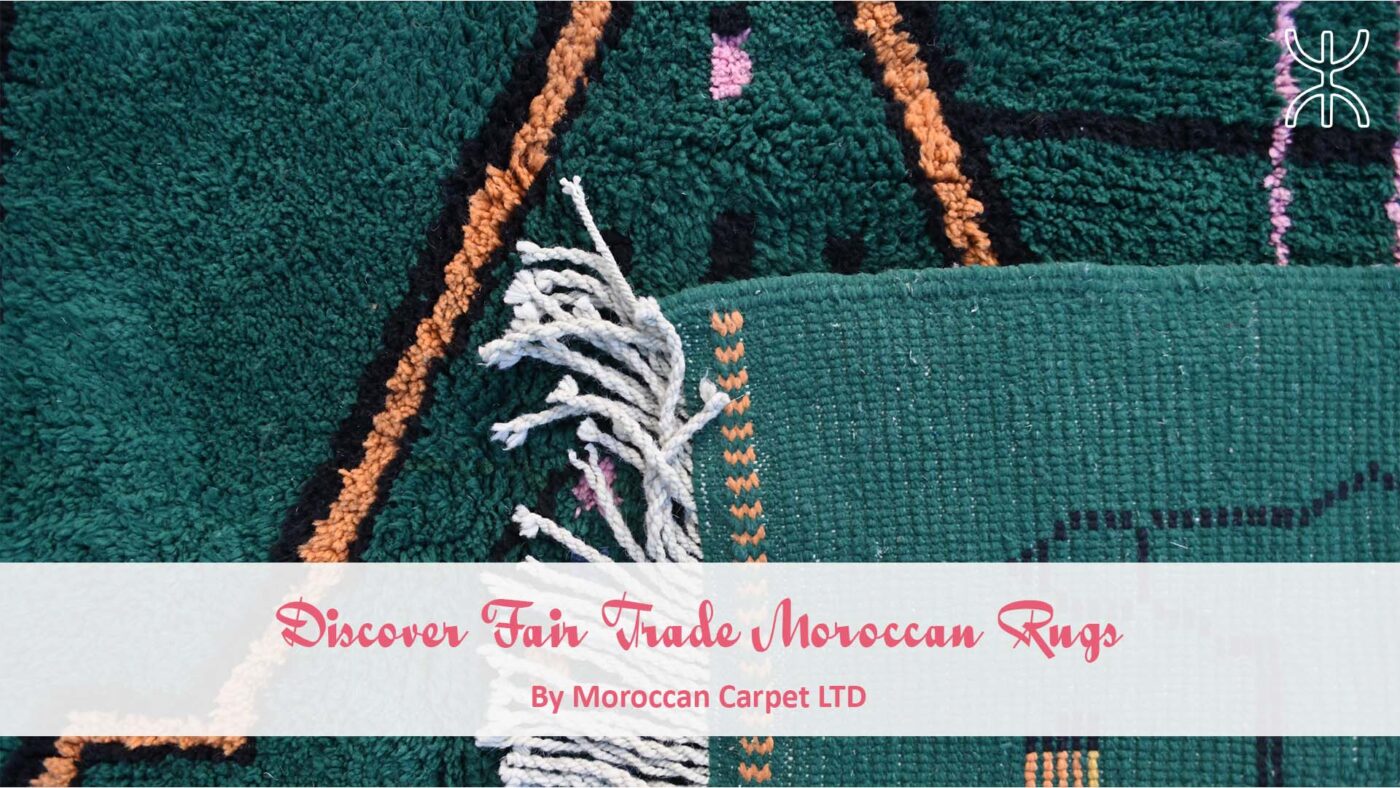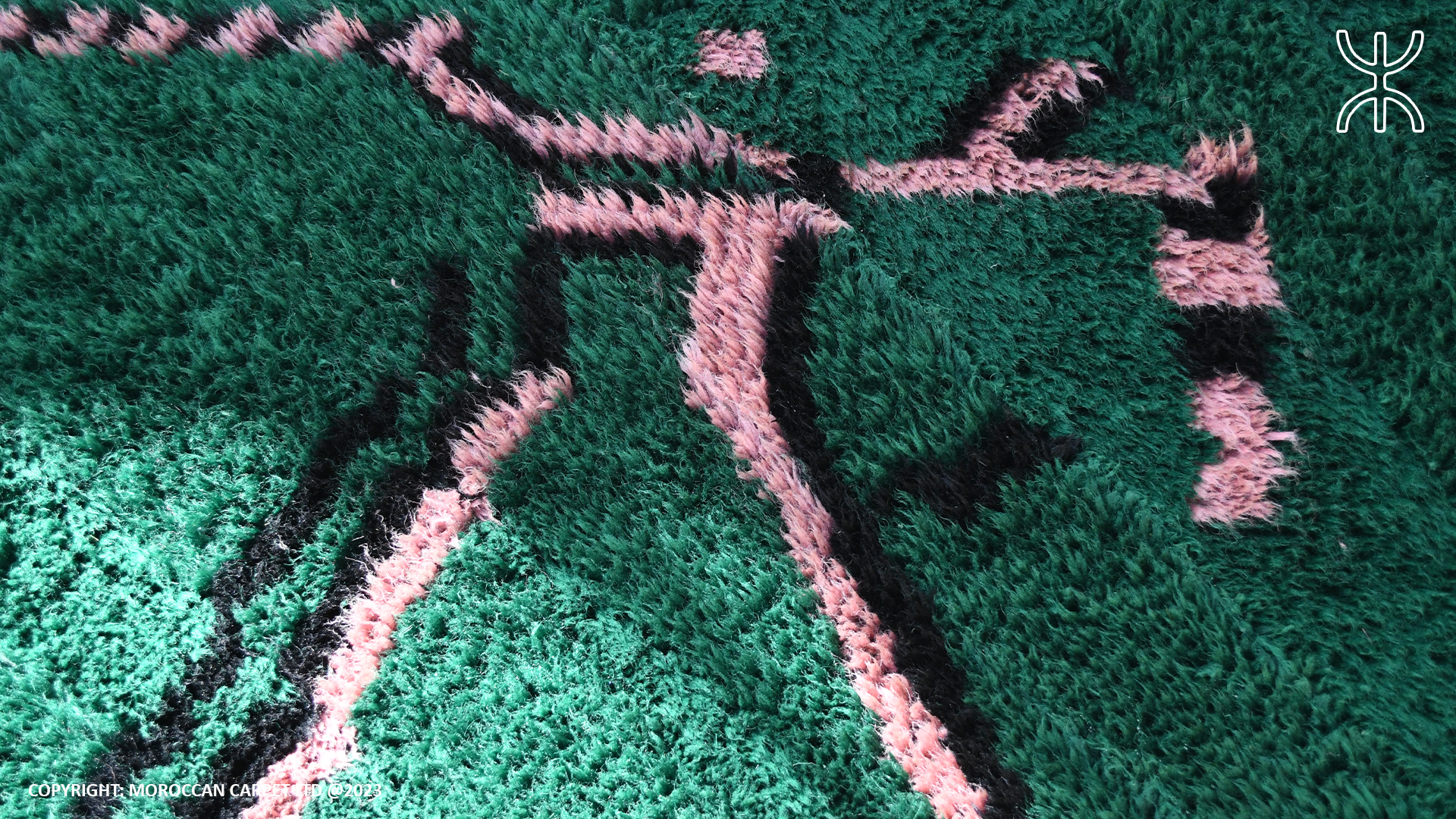Unveiling the Ethical Charm: Exploring Fair Trade Moroccan Rugs
Moroccan rugs have captivated hearts for centuries, renowned for their intricate designs, vibrant colors, and luxurious textures. They grace homes worldwide, adding a touch of warmth, character, and cultural intrigue to any space. But in today’s world, conscious consumers seek not just beauty, but ethical sourcing. This is where the art of fair trade Moroccan rugs steps in.
Empowering Artisans, Preserving Traditions: The Essence of Fair Trade
Traditionally, Moroccan rugs are hand-woven masterpieces, crafted by skilled artisans who carry the legacy of their craft through generations. However, in the past, these artisans have sometimes been exploited by middlemen, receiving meager compensation for their exquisite work. Fair trade practices aim to rectify this imbalance.
Fair trade organizations bridge the gap between artisans and consumers, ensuring fair pricing for rugs and fostering safe working conditions for weavers. By choosing a fair trade Moroccan rug, you become more than just a buyer – you become a patron, supporting the livelihood and cultural heritage of these talented artisans.
Beyond Aesthetics: Unveiling the Value of Fair Trade Rugs
When you invest in a fair trade Moroccan rug, you’re acquiring more than just a decorative piece. You’re welcoming a conversation starter into your home, a visual tapestry rich with cultural significance. Here’s what sets them apart:
- Ethical Production: Fair trade ensures artisans receive fair compensation, allowing them to invest in their families and communities. This fosters economic empowerment and a sense of security.
- Sustainable Development: Many fair trade organizations promote sustainable practices, encouraging the use of natural dyes and responsible wool sourcing. This contributes to environmental well-being.
- Preserving Cultural Legacy: By supporting fair trade, you contribute to the preservation of traditional weaving techniques and cultural motifs passed down through generations.
Unearthing Authenticity: Recognizing a Fair Trade Gem
The quest for a fair trade Moroccan rug requires a discerning eye. Here’s how to identify authentic, ethically sourced pieces:
- Reputable Certifications: Look for rugs certified by organizations like the Fair Trade Federation or the World Fair Trade Organization. These certifications guarantee fair trade practices throughout the production process.
- Embrace Imperfections: Handmade rugs often showcase slight variations in color or pattern. These imperfections are not flaws, but hallmarks of human artistry and individuality.
- Invest in Quality: Fair trade rugs might carry a slightly higher price tag, reflecting fair compensation for the artisans and the use of high-quality materials. Consider it an investment in a piece with cultural and artistic value.
- The Power of Storytelling: Explore the rug’s history and symbolism. Ask about the region it originates from, the meaning behind the patterns, and the techniques used in its creation.
A Treasure Beyond Adornment: Owning a Piece of History
A fair trade Moroccan rug is more than just a floor covering; it’s a tangible link to a rich cultural heritage. Owning a fair trade rug means appreciating the dedication of the artisans who crafted it, the beauty of their artistic expression, and the resilience of their cultural traditions.
By choosing fair trade, you’re not just adorning your space, you’re contributing to a brighter future for these artisans and their communities. You’re ensuring that the stories woven into these rugs continue to be told for generations to come.

